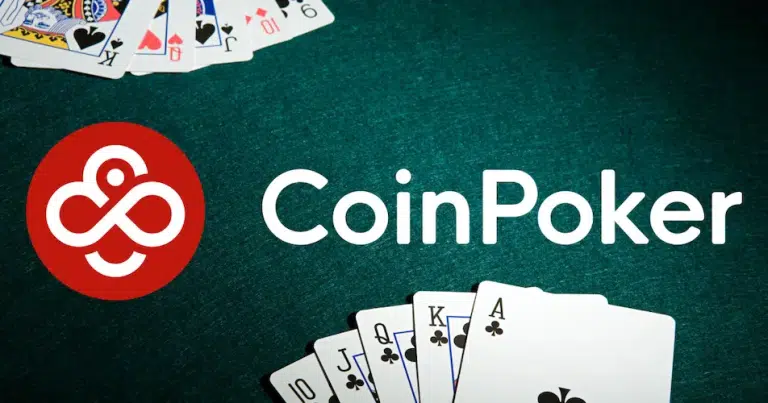The UK Gambling Commission (UKGC) has rolled out updated measures to strengthen anti-money laundering (AML) and counter-terrorist financing (CTF) practices for gambling operators. These new regulations, effective from 29 November 2024, aim to enhance industry oversight by clarifying key personnel roles, boosting accountability, and aligning with broader regulatory updates to safeguard consumers.
Licensing Requirements for Key Personnel
A key component of the updated rules involves specific individuals within gambling organizations obtaining a Personal Management Licence (PML). These licenses are mandatory for pivotal positions such as the Chief Executive Officer (CEO), Managing Director, Board Chair, Head of AML/CTF, and the officer nominated for reporting. Smaller operators are subject to less stringent requirements, needing PMLs only for personnel handling compliance and AML/CTF duties.
The revised framework is designed to close gaps in oversight and reduce vulnerabilities across the gambling sector. These changes reflect findings from the Commission’s Summer 2023 consultations, which sought to modernize AML/CTF standards in response to evolving risks. The consultations also emphasized improving transparency and holding senior management accountable for adhering to regulatory mandates.
Gambling businesses must ensure that staff members tasked with AML/CTF responsibilities meet the new PML requirements and are adequately trained. While this initiative might lead to short-term operational costs, it is expected to enhance the industry’s resilience and compliance practices over time.
A Broader Spectrum of Reforms
These updates represent a portion of a larger reform agenda announced by the UKGC, with additional changes set to take effect by 25 February 2025. Among these upcoming updates are “light-touch” financial vulnerability assessments for players exceeding certain spending limits. These measures aim to help users manage their gambling activities more responsibly and provide better control over marketing communications from operators.
Another major reform is the introduction of the controversial statutory levy. Gambling companies would be required to contribute 1% of their gross gaming revenue (GGR) toward funding research, education, and treatment (RET) programs. With the industry reporting a GGR of £10.9 billion ($13.8 billion) over the past year, this levy could generate approximately £109 million ($137.6 million) annually for these initiatives.
Strengthening the Industry for the Future
These regulatory updates signal the UKGC’s commitment to fostering a safer and more transparent gambling environment. The new measures not only hold operators and senior management accountable but also prioritize consumer protection. As these reforms unfold, gambling operators must stay adaptable to ensure compliance with shifting regulatory landscapes and evolving industry dynamics.
While some measures, such as enhanced AML requirements and the statutory levy, present immediate challenges, they are part of a broader push to create a responsible and sustainable gambling sector. By addressing vulnerabilities, increasing transparency, and emphasizing accountability, the UKGC aims to strike a balance between industry growth and safeguarding consumer interests.
AML Requirements in the UK for Banks, Crypto, and Gambling Businesses
The UK maintains stringent Anti-Money Laundering (AML) requirements to combat financial crime. For banks, the Money Laundering Regulations (MLRs) 2017, as amended, require customer due diligence (CDD), transaction monitoring, and reporting suspicious activity. Crypto businesses, regulated by the Financial Conduct Authority (FCA), face strict obligations under the MLRs, including registering with the FCA, conducting risk assessments, and adhering to Know Your Customer (KYC) and transaction reporting protocols. Recently, the gambling sector has been brought into the AML framework under the Gambling Commission’s supervision. Gambling businesses are required to implement robust KYC checks, monitor player behavior for suspicious activity, and report concerns to the National Crime Agency (NCA). These regulations reflect the UK’s proactive stance in preventing illicit financial flows through diverse sectors.
AML Regulations in Neighboring Countries
In Ireland, AML regulations align closely with the EU’s Anti-Money Laundering Directive (AMLD), requiring financial institutions, crypto businesses, and gambling operators to adhere to stringent CDD, enhanced due diligence (EDD), and transaction reporting standards. The Central Bank of Ireland oversees compliance, with particular focus on cryptocurrency businesses since the adoption of the Fifth AML Directive (5AMLD). Gambling operators must ensure robust measures are in place to prevent money laundering through betting activities, including regular audits and the identification of high-risk customers. In France, AML requirements are similarly stringent. The Autorité des Marchés Financiers (AMF) and the French Gambling Authority (ANJ) regulate financial and gambling institutions, respectively. Crypto businesses are required to register with the AMF and comply with CDD and transaction monitoring rules, while gambling operators face heightened scrutiny to mitigate risks associated with online betting platforms.
AML Regulations Across Europe
Across Europe, the AML landscape is shaped by the EU AMLD framework, which mandates harmonized rules for financial institutions, crypto businesses, and increasingly, gambling operators. Countries such as Germany have implemented enhanced measures, with BaFin (Federal Financial Supervisory Authority) imposing strict registration requirements for crypto businesses and ensuring gambling operators comply with AML standards tailored to address risks associated with digital transactions. In Italy, the Financial Intelligence Unit (FIU) and the Customs and Monopolies Agency (ADM) jointly oversee AML compliance, with gambling businesses required to integrate digital tools for real-time transaction monitoring. Scandinavian countries, known for their transparency, have taken a tech-driven approach to AML compliance, with Denmark and Sweden leveraging AI to monitor transactions and enhance reporting mechanisms. Europe’s integrated AML approach reflects a growing recognition of the need to adapt to evolving financial crime tactics, particularly in the digital era.

CoinPoker: Revolutionizing Poker with Blockchain Technology
CoinPoker is transforming the poker world by seamlessly integrating blockchain technology and cryptocurrency into a secure, innovative gaming platform. Since its debut in 2017, CoinPoker has attracted poker enthusiasts who value decentralized technology and modern gaming. Although its focus remains on poker, complemented by limited sports betting options, CoinPoker is steadily carving a niche in the global gambling market. Here’s what makes it a standout in the industry.
A Pioneering Blockchain-Based Poker Platform
Originally targeting casual players with free poker games, CoinPoker quickly evolved to include real-money options. By 2018, it began supporting cryptocurrency payments, allowing users to bet and receive rewards in Bitcoin, Ethereum, and its native token, CHP. Operating on the Ethereum blockchain, CoinPoker prioritizes security, fairness, and anonymity.
The platform’s standout feature is its blockchain-powered Random Number Generator (RNG), designed to ensure gameplay that is both transparent and tamper-proof. This focus on privacy and fairness has made CoinPoker a top choice for players seeking cutting-edge technology and secure gaming.
Building Trust Through Financial Transparency
CoinPoker strengthens user confidence with its Proof of Reserves (PoR) system, which guarantees that player funds are fully backed and segregated from operational assets. The platform currently holds approximately $16 million in player deposits, with a total reserve of $16.75 million, ensuring an impressive 105% coverage rate.
Licensed under Curaçao eGaming, CoinPoker complies with stringent regulatory standards, offering players a transparent and secure financial environment.
Ensuring Fair Play and Responsible Gaming
CoinPoker is dedicated to maintaining fair play and fostering a responsible gaming environment. By leveraging blockchain-based RNG technology and anti-fraud systems, the platform provides a level playing field for all participants. Players also benefit from a range of responsible gaming tools, including self-exclusion options, which help manage gaming habits. A dedicated responsible gaming officer oversees these initiatives, ensuring a safe environment for all users.
The platform extends its offerings beyond poker by including sports betting with competitive odds. Additionally, CoinPoker’s mobile apps for iOS and Android enhance accessibility, enabling players to enjoy games wherever they are.
Seamless and Secure Crypto Transactions
One of CoinPoker’s key differentiators is its streamlined cryptocurrency transactions. Players can deposit and withdraw funds quickly and privately using crypto wallets, avoiding the delays and restrictions associated with traditional banking systems. This emphasis on speed and discretion appeals to users seeking privacy and convenience, positioning CoinPoker as a leading choice in the poker industry.
Engaging the Community with Partnerships and Events
CoinPoker places a strong emphasis on community engagement. The platform regularly organizes giveaways and collaborates with notable poker ambassadors, energizing its user base.
For example, ambassador Bobby James captured attention with a fifth-place finish at the 2024 EPT Cyprus Main Event, earning $271,400. CoinPoker celebrated this achievement by hosting a special giveaway, further connecting with its community. Another ambassador, Patrick Leonard, added to the excitement by finishing 28th in the same event, winning $26,600.
These high-profile partnerships not only boost CoinPoker’s credibility but also create buzz within the poker and cryptocurrency communities.
A Unique Experience for Poker and Crypto Enthusiasts
Although CoinPoker may not offer the extensive features of larger platforms, it stands out for its niche focus on blockchain-driven innovation, privacy, and fairness. It provides an exciting alternative to traditional poker platforms by combining the thrill of the game with the benefits of cryptocurrency.
For players seeking a secure, cutting-edge, and community-oriented gaming experience, CoinPoker is a compelling choice. Its blend of decentralized technology and innovative gaming makes it a must-try for poker fans embracing the future of online gaming.
Related News
Lucky Block Casino – Decentralized Gambling Platform

- Bet With Crypto – BTC, ETH, USDT, LBLOCK and More
- Live Dealers – luckyblock.com
- Rated Best New Crypto Casino – No KYC
- Thousands of Slots, Blackjack, Roulette Games

